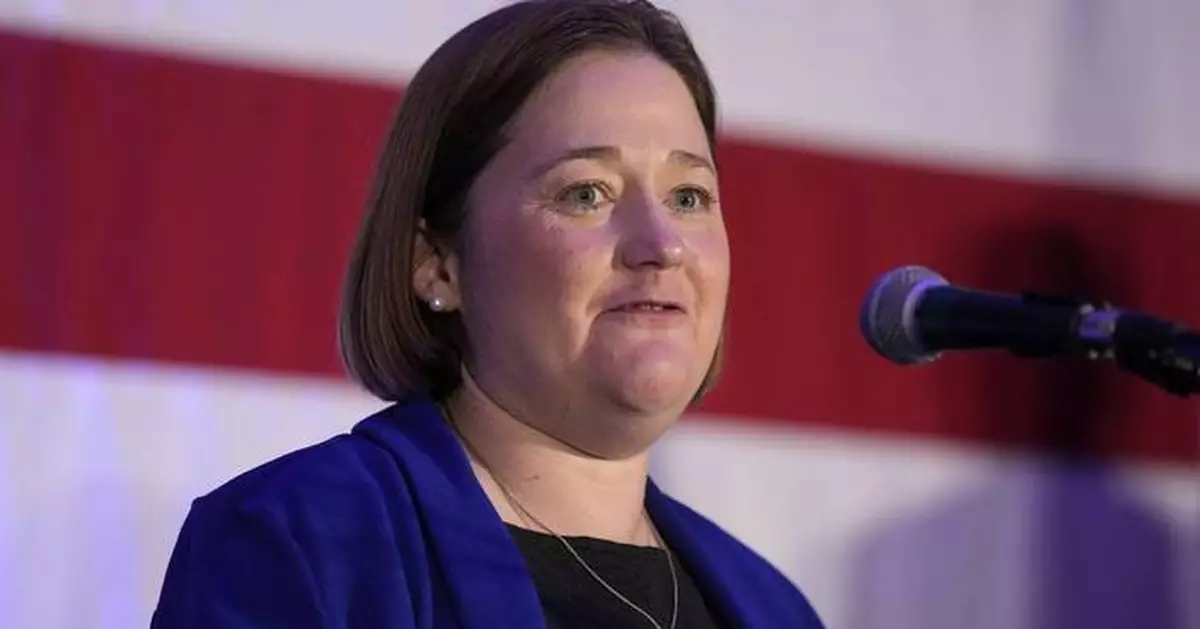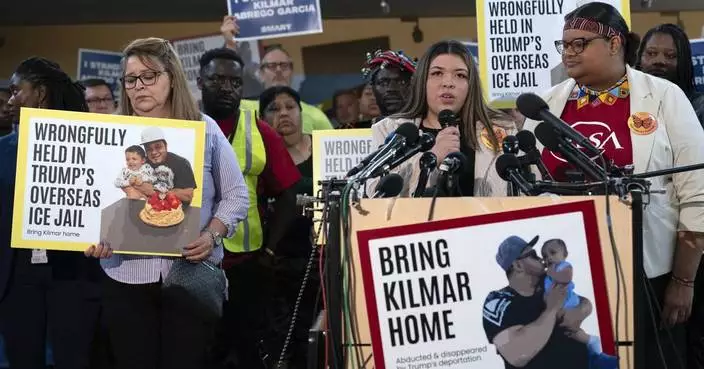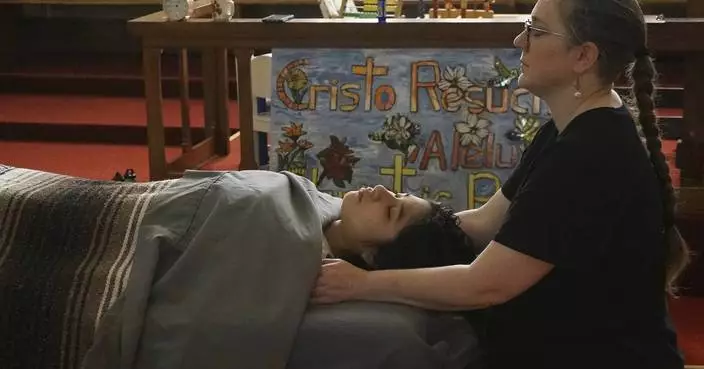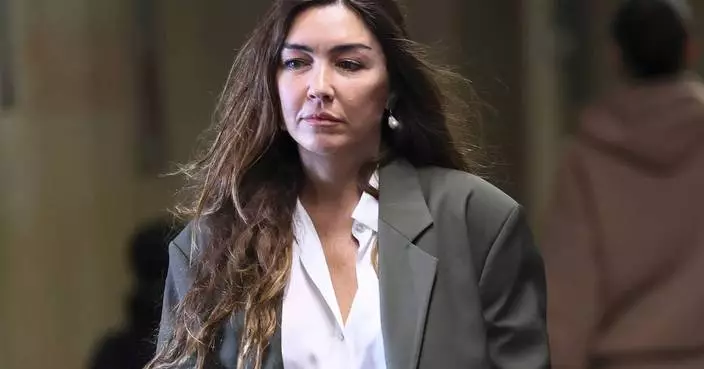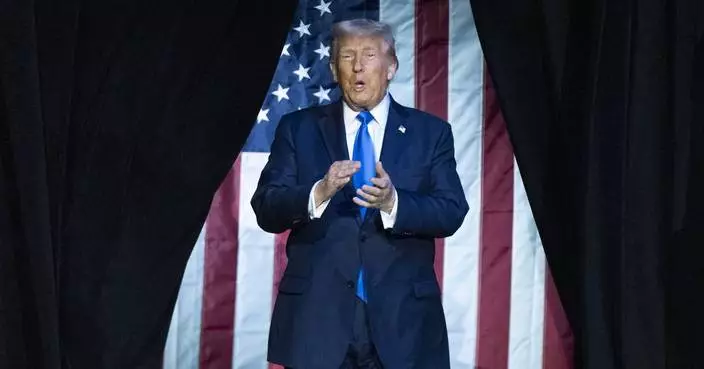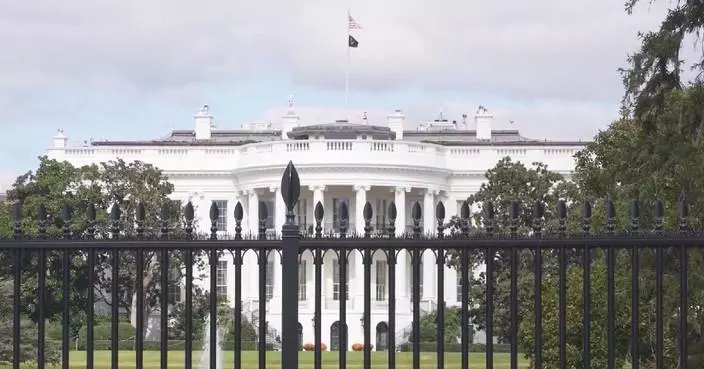DES MOINES, Iowa (AP) — Iowa’s top prosecutor is proposing an amendment to the state constitution to solve what one lawmaker called an “interesting conundrum," weighing a person's constitutional right to confront their accuser in the courtroom against the desire to protect traumatized children and vulnerable people.
But some worry the proposal could hinder a defendant's rights in court.
The Iowa House approved the measure last week, and it passed the Senate in March, though it would take years and several more votes — by lawmakers and the public — before the state constitution could be changed.
The issue stems from a state Supreme Court decision last year that said the Iowa Constitution requires people accused of a crime and the trial witnesses testifying against them to see each other. The decision broke with decades of how the U.S. Supreme Court and other states handle the issue, Iowa Attorney General Brenna Bird argues.
“We are the only state that has come to that conclusion,” said Bird, a Republican. “It’s really important that we can protect kids in court, that kids who have been traumatized can have the opportunity to testify outside the presence of the person they may be very, very afraid of.”
The amendment would say that constitutional right “may be limited by law” for certain witnesses: those under 18 and those with mental illness, intellectual disability or other developmental disability.
Both legislative chambers would need to approve the measure again in 2027 or 2028 to put it before voters in November 2028.
The Sixth Amendment of the U.S. Constitution lays out the rights of the accused in criminal prosecutions, specifying the right to a speedy trial, an impartial jury, and, among other things, “to be confronted with the witnesses against him.”
The Iowa Constitution, adopted in 1857, also defines the rights of persons accused, including the same confrontation clause.
The U.S. Supreme Court said in a 1990 decision, Maryland v. Craig, that “the right to confront accusatory witnesses may be satisfied absent a physical, face-to-face confrontation” when remote testimony is necessary and can be provided reliably.
“Maryland’s interest in protecting child witnesses from the trauma of testifying in a child abuse case is sufficiently important to justify the use of its special procedure,” the decision said.
The majority of courts across the country have aligned with that Supreme Court decision, according to Colin Miller, a University of South Carolina law professor.
The most common exception is when the state's confrontation clause includes the words “face to face." That explicit text led the New Hampshire Supreme Court this year, for example, to say a 9-year-old girl’s remote testimony violated the defendant’s constitutional right.
“Up until Iowa, our — as practitioners and as a national agency — operating assumption was that if it did not say ‘face to face’ in the state constitution, they would abide Maryland v. Craig,” said Meg Garvin, executive director of the National Crime Victim Law Institute at Lewis & Clark Law School.
Garvin was referencing the Iowa Supreme Court’s decision last year that reversed the convictions for a man accused of neglect or abuse of a child and child endangerment causing bodily injury. Two of his other children testified against him from outside the courtroom, where they could not see the defendant.
A 1998 state law carved out that exception for a minor needing protection “from trauma caused by testifying in the physical presence of the defendant where it would impair the minor’s ability to communicate.” If the judge allows, a minor’s testimony could be televised to the jury and defendant in the courtroom.
Iowa's confrontation clause does not specify “face to face,” but the court said that violated his constitutional right to confrontation, declaring the state constitution affords more protection to criminal defendants than the federal constitution.
"When our constitution was adopted, a ‘confrontation’ was understood to involve a ‘face to face’ encounter,” the court said.
Bird said her office wanted to ensure the solution they proposed to protect kids “stands the test of time.”
It’s supported by law enforcement and county attorneys, as well as various victim advocacy organizations, many of whom told lawmakers that justice isn’t being served in Iowa if children are forced to face an abuser again or are too afraid to tell their stories.
“The thing that I sit almost daily, definitely weekly, and grapple with with parents is when they have to decide: ‘Is the price of justice worth it for my child?’” Wendy Berkey, a family advocate at a Des Moines-area child protection center, told lawmakers in January. “Unfortunately, right now in Iowa the answer they often have is no.”
The public opposition to the proposal has been concentrated among defense attorneys who cite examples of people wrongly accused and say these allowances for certain witnesses signal to the jury that the defendant is guilty.
The existing law looks similar to the approach in many states, said Chris Wellborn, president of the National Association of Criminal Defense Lawyers. But Wellborn suggested that changing the constitution is a slippery slope.
“They’re basically futzing around with the Sixth Amendment,” he said. “I would argue that’s a very dangerous road to go down because when you start saying we carve out exceptions for someone’s confrontational rights, do we also carve out exceptions for their right to present a defense?”
Bird said the current law has “worked for years without controversy," and she is not seeking additional legislation.
But Wellborn's concern was echoed by Republican state Rep. Charley Thomson, who said the provisions “open the door wide to mischief by future legislatures.”
State Rep. Steven Holt acknowledged the constitutionality concerns but said the Iowa Supreme Court didn't offer many options.
“They struck it down but didn't really give any guidance as to what we should do,” said Holt, a Republican. “They've left us with an interesting conundrum as we try to protect children in the courts against ... having to be traumatized again.”
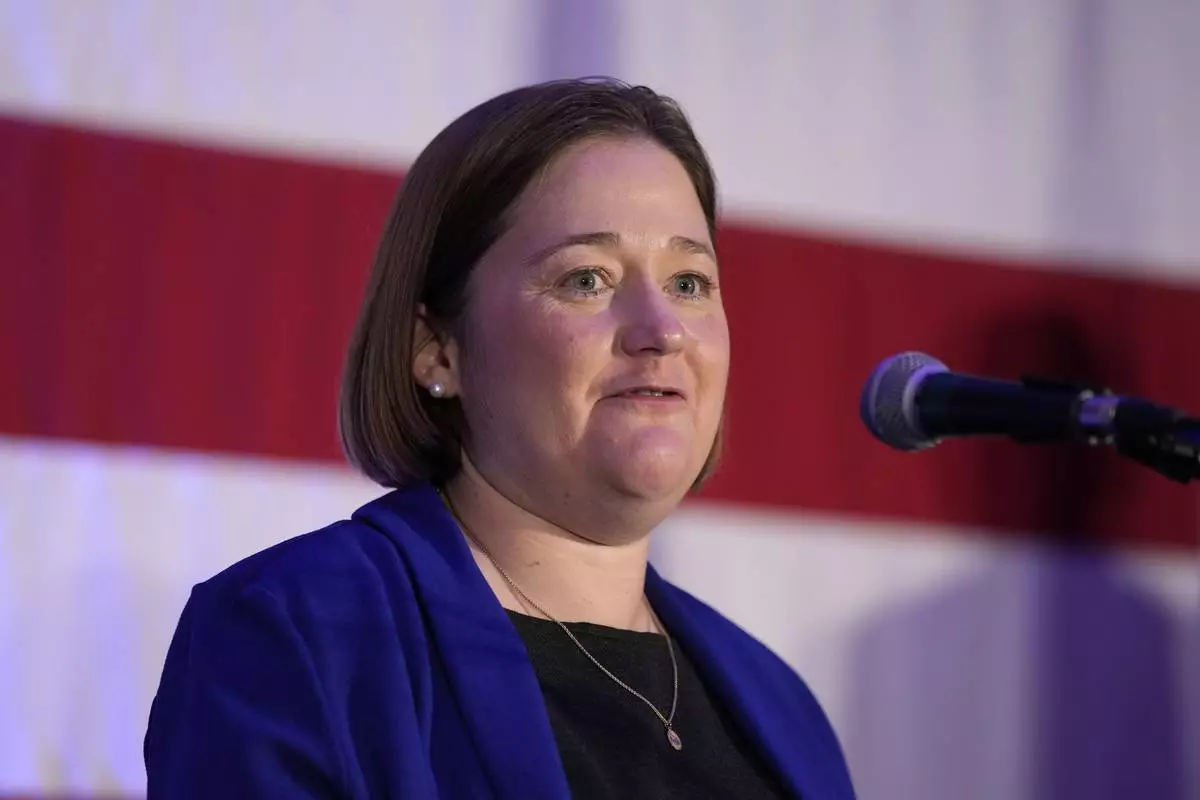
FILE - Iowa Republican Attorney General candidate Brenna Bird speaks during a Republican Party of Iowa election night rally, Nov. 8, 2022, in Des Moines, Iowa. (AP Photo/Charlie Neibergall, File)
The nation's public broadcasting system — decades-long home to Big Bird, Ken Burns documentaries and “All Things Considered" — faces the biggest crisis in its nearly 60-year history with President Donald Trump's order to slash federal subsidies.
A court fight seems inevitable, with the heads of PBS, NPR and the Corporation for Public Broadcasting all suggesting Friday that Trump's order is illegal.
“We will vigorously defend our right to provide essential news, information and life-saving services to the American public,” said Katherine Maher, NPR's president and CEO. “We will challenge this executive order using all means available.” Her counterpart at PBS, Paula Kerger, said Trump's order was blatantly unlawful.
The public broadcasting system dates back to the late 1960s, devised as an educational and public service-oriented alternative to commercial broadcasters available at the time. In his order, Trump said the system has become politically biased and time has passed it by.
“Today the media landscape is filled with abundant, diverse and innovative news options,” the president said in his order, issued just before midnight Thursday. “Government funding of news media in this environment is not only outdated and unnecessary, but corrosive to the appearance of journalistic independence.”
Trump's order concentrates on news, and between PBS' “NewsHour” and a robust reporting corps at NPR, that's an important part of their operations. But public broadcasting also has entertainment programming, educational children's shows and Burns' historical documentaries.
PBS and NPR get about a half-billion dollars a year in public funding funneled through the private Corporation for Public Broadcasting. Roughly 70% of that goes directly to the 330 local PBS outlets and 246 NPR stations.
On average, PBS says 15% of its stations' budgets come from public funding. But there are wide variations; stations in larger markets usually get more money through philanthropy and fund drives, while smaller stations depend much more on the government.
Besides Trump's order, Congress has been considering future funding levels for the public broadcasters, and the Federal Communications Commission is questioning public broadcasting efforts at corporate underwriting, said Josh Shepperd, author of the 2023 book “Shadow of the New Deal: The Victory of Public Broadcasting.”
“It's a three-pronged effort that is frankly very smart in its institutional understanding,” Shepperd said. “They're not just going after programs that they don't like. They're going after the operations and the infrastructure that makes it possible to even air the programming.”
Trump's order instructs the CPB and other government agencies to “cease Federal funding” for PBS and National Public Radio and further requires that they work to root out indirect sources of public financing. Separate from the CPB grant, for example, PBS gets a grant from the U.S. Department of Education for programming that helps build the reading, math and science skills for children age 2 to 8, particularly in poor areas.
The administration's plan might not threaten your favorite program — Burns gets plenty of corporate and philanthropic support — but it may impact local programming and potential growth, Shepperd said.
Congressional Republicans aired some of their grievances about public broadcasting to Kerger and Maher at a public hearing in March. Such complaints have been common over the years, but the broadcasters have avoided funding cuts, in large part because members of Congress don't want to be seen as responsible if a station in their district shuts down. Who wants to be the public official who killed “Sesame Street”?
Also, public pressure from constituents is minimized because most Republicans don't watch PBS or listen to NPR, said Tim Graham, director of media analysis at the conservative Media Research Center. “I have this morning habit of listening to NPR on my commute,” Graham said. “I yell at the radio.”
For years, Graham's group has issued reports with examples of what it says is bias against conservatives. For example, during an 18-month period that ended last November, his researchers counted 162 examples of PBS journalists or contributors making reference labeling some politicians “far right” or some variation, with only six called “far left.”
He said he's not trying to shut down these stations, but resists them receiving public money.
“Let the people who listen to it do the funding,” Graham said.
At a board meeting Friday, CPB president and CEO Pat Harrison said her agency has taken bias concerns seriously. It has increased investments in fact-based local journalism, and provided a grant to NPR to make changes in its newsroom to address issues of bias.
The court fight over public broadcasting has already begun. The president earlier this week said he was firing three of the five remaining CPB board members — threatening its ability to do any work — and was immediately sued by the CPB to stop it.
The executive order is also the latest move by Trump and his administration to utilize federal powers to control or hamstring institutions whose actions or viewpoints he disagrees with — particularly those related to media.
Since taking office in January for a second term, Trump has ousted leaders, placed staff on administrative leave and cut off hundreds of millions of dollars in funding to artists, libraries, museums, theaters and others, through takeovers of the John F. Kennedy Center for the Performing Arts and the National Endowment for the Humanities. Trump has also pushed to withhold federal research and education funds from universities and punish law firms unless they agree to eliminate diversity programs and other measures he has found objectionable.
The move against PBS and NPR comes as Trump's administration works to dismantle the U.S. Agency for Global Media, including Voice of America and Radio Free Europe/Radio Liberty, which were designed to model independent news gathering globally in societies that restrict the press.
Those efforts have faced pushback from federal courts, which have ruled in some cases that the Trump administration may have overstepped its authority in holding back funds appropriated to the outlets by Congress.
AP Congressional Correspondent Lisa Mascaro contributed to this report. David Bauder writes about media for the AP. Follow him at http://x.com/dbauder and https://bsky.app/profile/dbauder.bsky.social
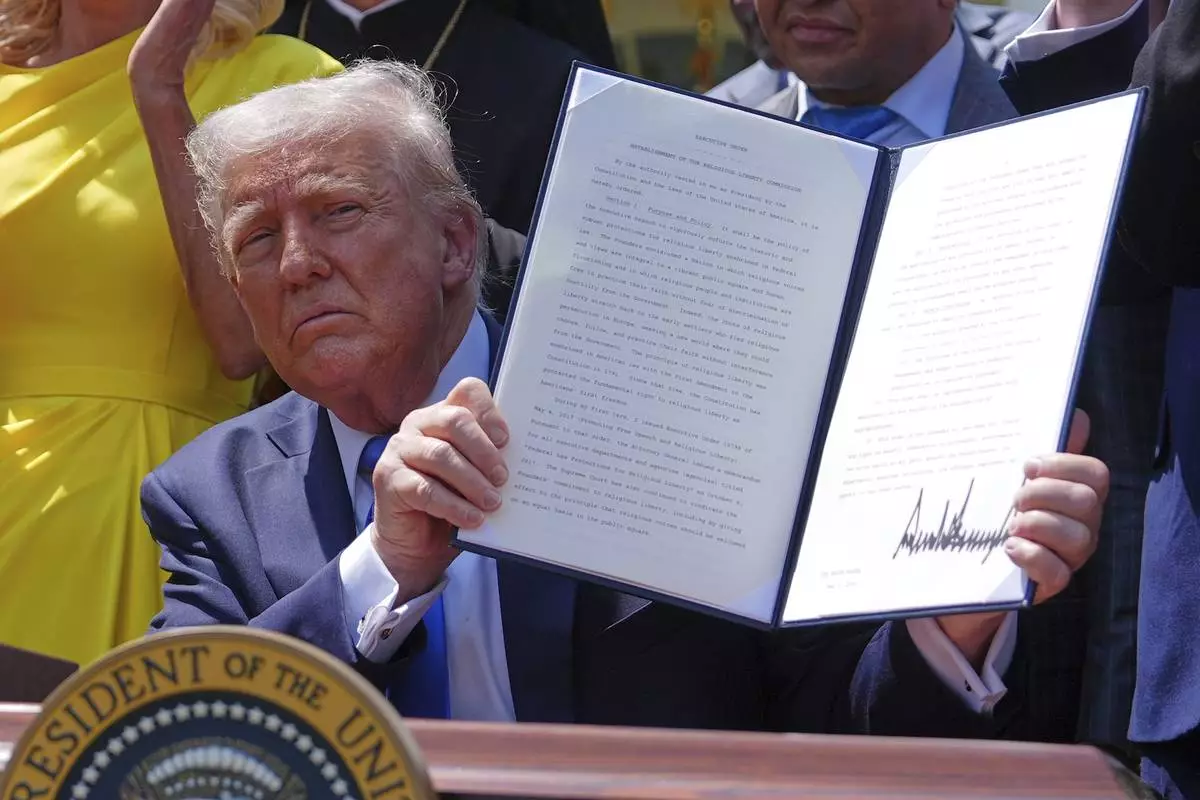
President Donald Trump holds up a signed executive order establishing the Religious Liberty Commission, during a National Day of Prayer event in the Rose Garden of the White House, Thursday, May 1, 2025, in Washington. (AP Photo/Evan Vucci)
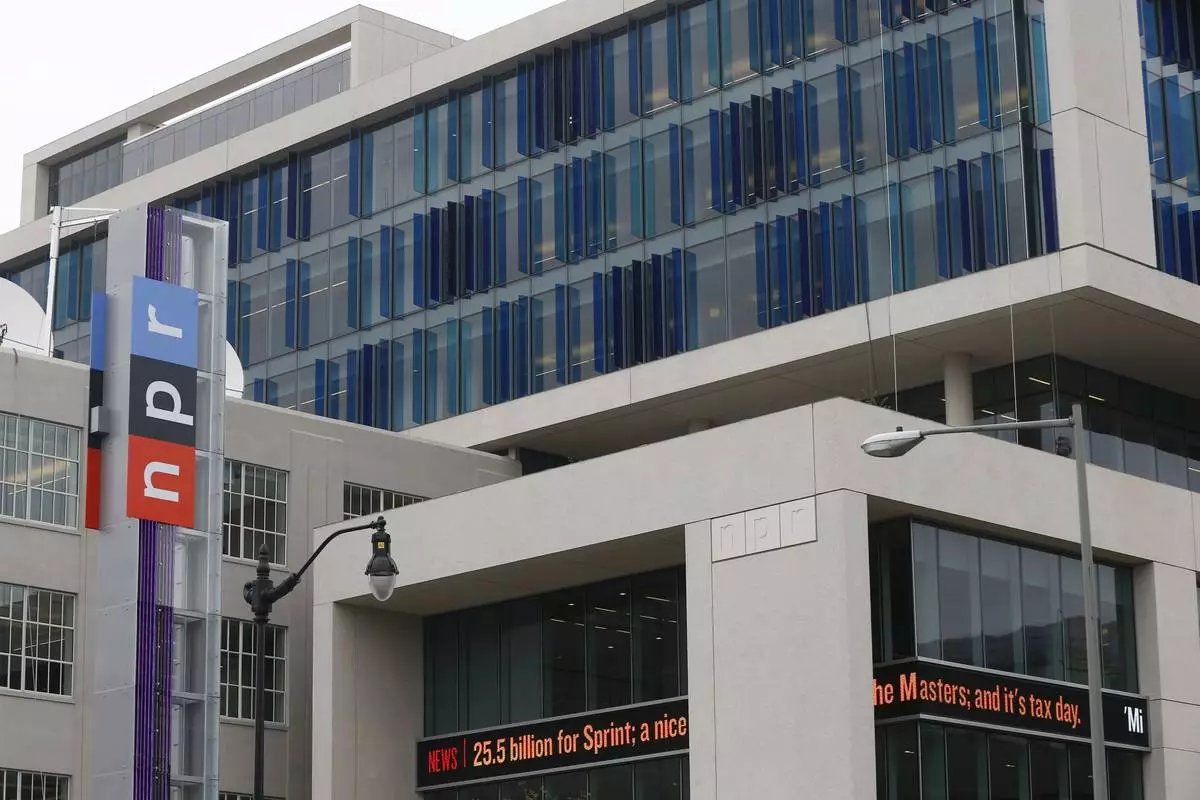
FILE - The headquarters for National Public Radio (NPR) is seen in Washington, April 15, 2013. AP Photo/Charles Dharapak, File)
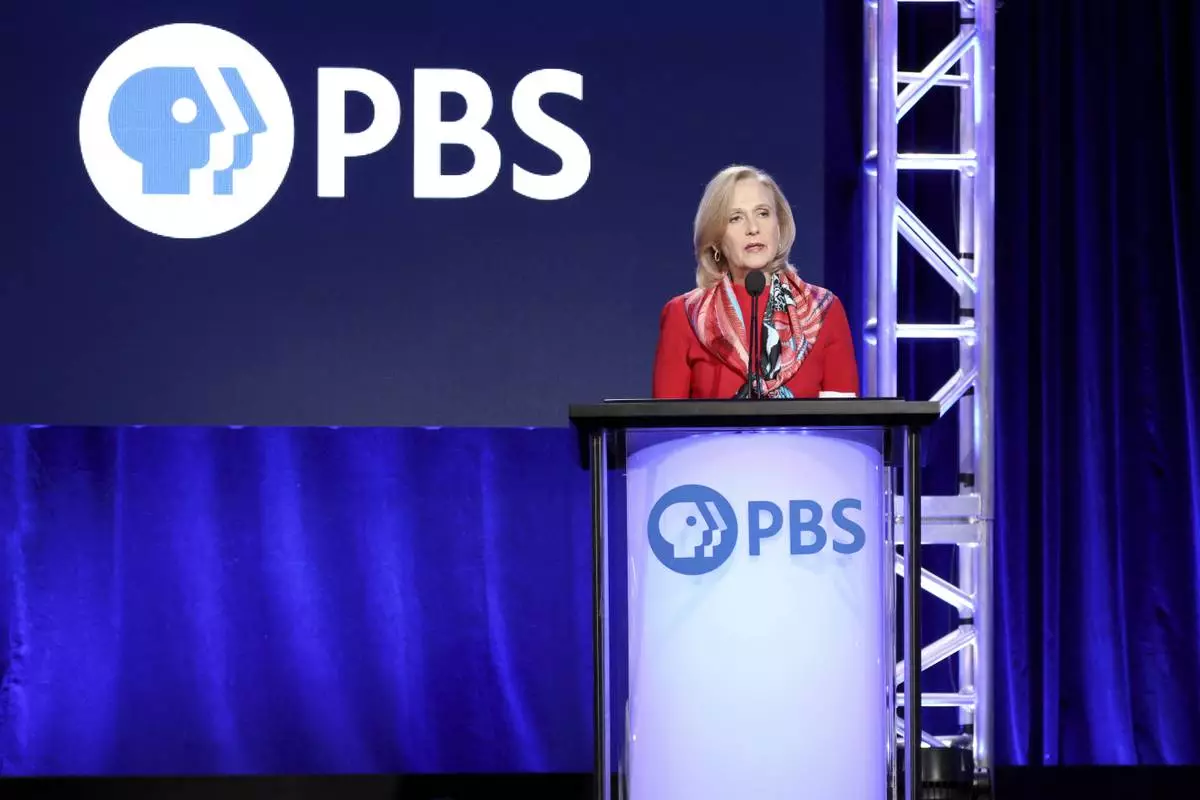
FILE - Paula Kerger, President and CEO at PBS, speaks at the executive session during the PBS Winter 2020 TCA Press Tour at The Langham Huntington, Pasadena, Jan. 10, 2020, in Pasadena, Calif. (Photo by Willy Sanjuan/Invision/AP, File)



